The Impulse Model
Putting an end to human trafficking and exploitation, worldwide.
The 6P’s of the Impulse Model are as follows:
 Providing a national and international platform for collaboration between public and private sector stakeholders. The combined strength of these partnerships is the most essential element in countering human trafficking.
Providing a national and international platform for collaboration between public and private sector stakeholders. The combined strength of these partnerships is the most essential element in countering human trafficking.
To know more about Partnerships under the Impulse Model, please click here.
 Conducting awareness programs either private and public sector agencies. Lack of economic opportunities put individuals vulnerable to human trafficking as many migrate to find work. Hence, carefully designed and implemented livelihood initiatives as Impulse social enterprises in rural areas are effective preventive methods.
Conducting awareness programs either private and public sector agencies. Lack of economic opportunities put individuals vulnerable to human trafficking as many migrate to find work. Hence, carefully designed and implemented livelihood initiatives as Impulse social enterprises in rural areas are effective preventive methods.
To know more about Prevention under the Impulse Model, please click here.
 Ensuring that the survivors of human trafficking are provided with the necessary support services as per the law by trained and sensitised professionals. The aspect of protection, therefore, includes policymaking and ensuring that the delivery of services as per the law is in place in all the states and districts.
Ensuring that the survivors of human trafficking are provided with the necessary support services as per the law by trained and sensitised professionals. The aspect of protection, therefore, includes policymaking and ensuring that the delivery of services as per the law is in place in all the states and districts.
To read more about Protection under the Impulse Model, please click here.
 We organize training, consultations and have developed handbooks for law enforcement personnel to sensitise them and encouraged to apply victim-friendly procedures. INGON collaborates with (AHTU) Anti-Human Trafficking Units by supporting them with technical assistance during various stages of handling cases.
We organize training, consultations and have developed handbooks for law enforcement personnel to sensitise them and encouraged to apply victim-friendly procedures. INGON collaborates with (AHTU) Anti-Human Trafficking Units by supporting them with technical assistance during various stages of handling cases.
To read more about Policing under the Impulse Model, please click here.
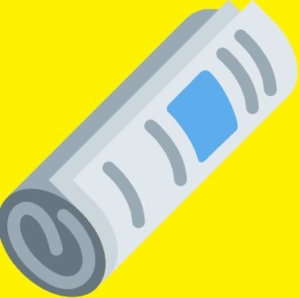 We recognize media as a powerful tool to help raise awareness and in locating missing victims. Therefore, it is crucial that media personnel equally recognize the issue while publishing articles on human trafficking and realize the trauma of the victims by treating survivors with respect and dignity when interviewing them.
We recognize media as a powerful tool to help raise awareness and in locating missing victims. Therefore, it is crucial that media personnel equally recognize the issue while publishing articles on human trafficking and realize the trauma of the victims by treating survivors with respect and dignity when interviewing them.
To know more about Press under the Impulse Model, please click here.
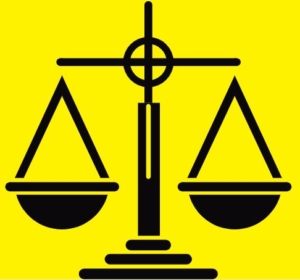 Justice is a crucial step for victims to become survivors as failure to prosecute effectively encourages human traffickers to continue to flout the laws. A human trafficking case is not successfully closed without the trafficker being convicted as per the law with verification of documentation of cases.
Justice is a crucial step for victims to become survivors as failure to prosecute effectively encourages human traffickers to continue to flout the laws. A human trafficking case is not successfully closed without the trafficker being convicted as per the law with verification of documentation of cases.
To know more about Prosecution under the Impulse Model, please click here.
The 6R’s of the Impulse Model are as follows:
 A case can be referred/reported to Impulse Case Management Centre (ICMC) at any stage by any concerned person (family or non-family). Once a case has been reported, ICMC records the case in the ICMC database, and immediately refers the case to the respective AHTU and partner organisations at the source and destination points.
A case can be referred/reported to Impulse Case Management Centre (ICMC) at any stage by any concerned person (family or non-family). Once a case has been reported, ICMC records the case in the ICMC database, and immediately refers the case to the respective AHTU and partner organisations at the source and destination points.
To know more about Reporting under the Impulse Model, please click here.
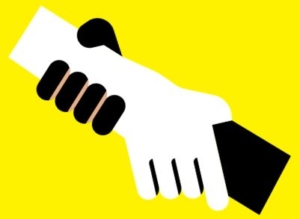 ICMC provides training to the law enforcement agencies and partner organisations on all aspects of their responsibilities during the rescue operations, taking into consideration pre-rescue planning and post-rescue requirements as well as on victim-friendly and gender/child-sensitive approach to conducting the rescue.
ICMC provides training to the law enforcement agencies and partner organisations on all aspects of their responsibilities during the rescue operations, taking into consideration pre-rescue planning and post-rescue requirements as well as on victim-friendly and gender/child-sensitive approach to conducting the rescue.
To know more about Rescue under the Impulse Model, please click here.
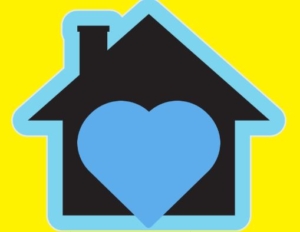 Rehabilitation starts immediately after the victim is rescued. ICMC collaborates with social welfare departments of respective provinces to provide short term shelter for the rescued person(s). In case the government shelter is not available, ICMC refers the rescued persons to an NGO run shelter home registered with and approved by the government.
Rehabilitation starts immediately after the victim is rescued. ICMC collaborates with social welfare departments of respective provinces to provide short term shelter for the rescued person(s). In case the government shelter is not available, ICMC refers the rescued persons to an NGO run shelter home registered with and approved by the government.
To know more about Rehabilitation under the Impulse Model, please click here.
 We work via our Impulse Case Management Centres (ICMC) on a Home Investigation Report (HIR) repatriation of victims. HIR helps us assess if it safe for the survivors to return home and not the cycle of violence. If found unsuitable, ICMC collaborates with social welfare department to arrange suitable long-term accommodation along with vocational training, education or employment.
We work via our Impulse Case Management Centres (ICMC) on a Home Investigation Report (HIR) repatriation of victims. HIR helps us assess if it safe for the survivors to return home and not the cycle of violence. If found unsuitable, ICMC collaborates with social welfare department to arrange suitable long-term accommodation along with vocational training, education or employment.
To know more about Repatriation under the Impulse Model, please click here.
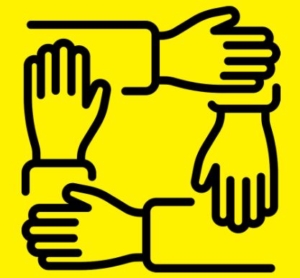 Having access to education, training or employment is essential for the victim/survivor to begin the process of rebuilding his/her life. ICMC and partner organizations follow up with the survivors for a period of two years, to ensure that the survivor is safe and on the road to recovery. Follow-ups are carried out with a high degree of discretion so that the survivors have time to heal and are not re-victimized.
Having access to education, training or employment is essential for the victim/survivor to begin the process of rebuilding his/her life. ICMC and partner organizations follow up with the survivors for a period of two years, to ensure that the survivor is safe and on the road to recovery. Follow-ups are carried out with a high degree of discretion so that the survivors have time to heal and are not re-victimized.
To know more about Re-Integration under the Impulse Model, please click here.
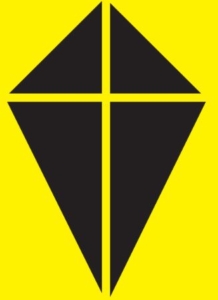 Several states of India have introduced recompensation schemes which include recompensation for victims of human trafficking. In the case of the fatality of the victim, the family of the victim may also be eligible for restitution. ICMC collaborates with State Legal Services Authorities (SLSA) to ensure that all rescued persons of human trafficking are granted financial restitution.
Several states of India have introduced recompensation schemes which include recompensation for victims of human trafficking. In the case of the fatality of the victim, the family of the victim may also be eligible for restitution. ICMC collaborates with State Legal Services Authorities (SLSA) to ensure that all rescued persons of human trafficking are granted financial restitution.
To know more about Restitution under the Impulse Model, please click here.
The Impulse Model (formerly known as The Meghalaya Model) is an internationally acknowledged, holistic method that encourages and engages key stakeholders from the public and private sectors to work together to combat human trafficking.
The Impulse Model was designed by INGON Founder & Chairperson, Hasina Kharbhih.
How Does the Impulse Model Work?
Key stakeholders (such as government departments, law enforcement agencies, the judiciary, civil society organisations, private sector institutions and the media) have their own resources and legal mandates to tackle the complex and multi-layered crime of human trafficking.
For instance, law enforcement would identify themselves with the policing, prevention and protection pillars, while the media’s strengths would lie in the pillars of press and prevention, whereas legal agencies would situate themselves in the prosecution and protection pillars under the Impulse Model.
Therefore, the Impulse Model seeks to bring all these stakeholders together to work in close collaboration while ensuring that one’s efforts and resources do not overlap but enhance one another.
Impulse NGO Network (INGON) recognises that the fight against human trafficking is not a one-man job, and that our partnerships with various stakeholders under the Impulse Model, have to be organised and coordinated, for us to be effective. Which is why we created the Impulse Case Management Centre (ICMC) (formerly known as Impulse Case Info Centre) to enhance and streamline the way we manage and track cases of human trafficking.
This has resulted in an overall increased reliability and efficacy of response to human trafficking and has further strengthened the anti-human trafficking network through increased and continuous communication.
What makes the Impulse Model unique?
At the heart of the Impulse Model, is the Impulse Case Management Centre (ICMC), which records, compiles, and keeps track of all relevant information on human trafficking cases, adhering to the 6 R’s of the Impulse Model formula of 6R + 6P, which is described in detail below.
This process and formula of the Impulse Model makes it replicable anywhere in the world.
The Impulse Model complements the best local practices, and brings together different stakeholders in the fight against trafficking-in-persons under one roof, to create a systematic and collective anti-human trafficking effort.
Currently, the Impulse Model has been replicated in all the eight states of north-east India, and is also being piloted for national replication by the Government of India. It has also been adopted in Myanmar, Nepal and Bangladesh by our local country partners.
Furthermore, several other countries around the world have shown interest in learning about the Impulse Model, and are contemplating its usage in their fight against human trafficking as well.

